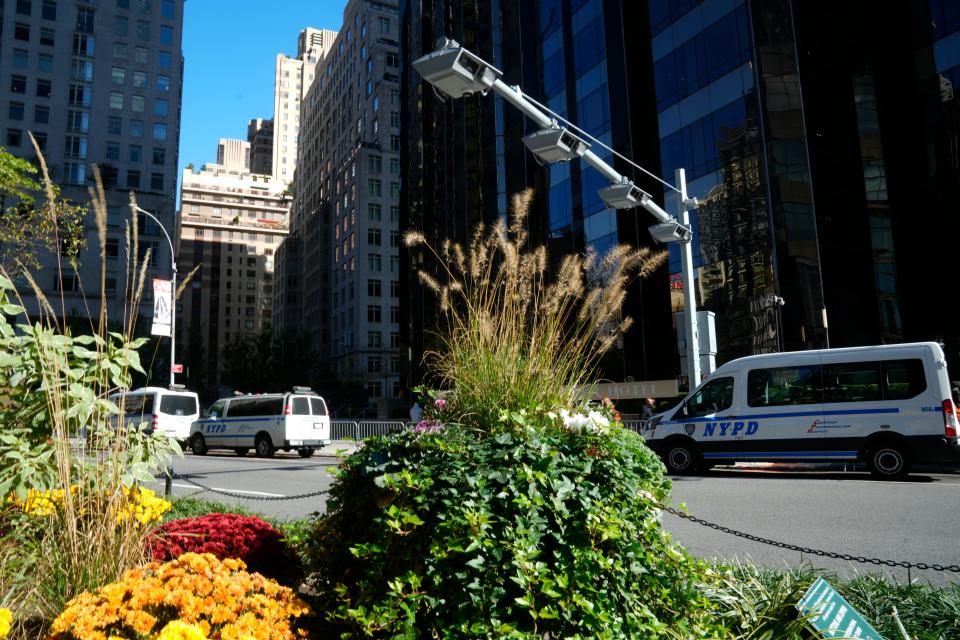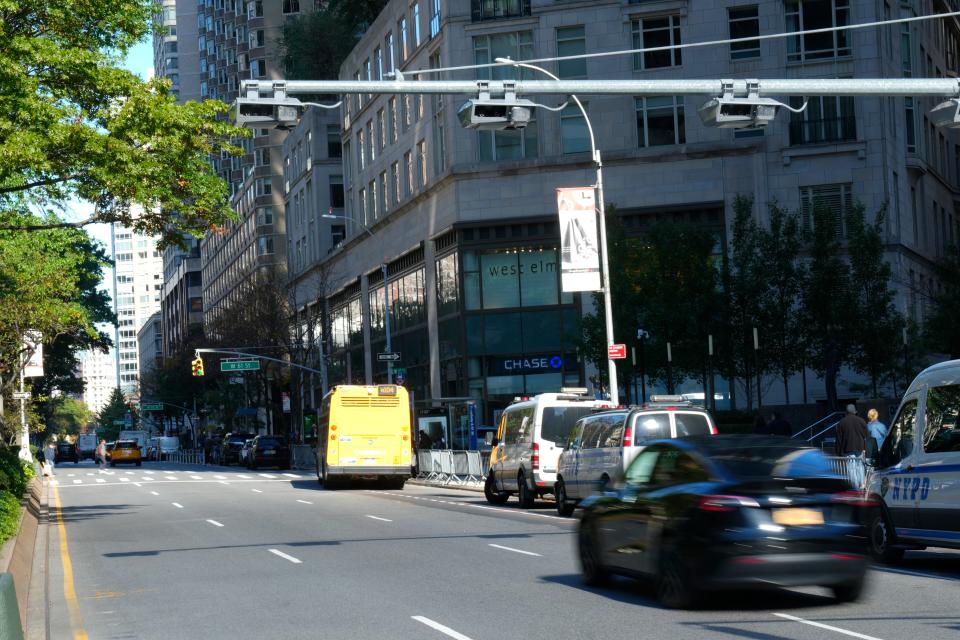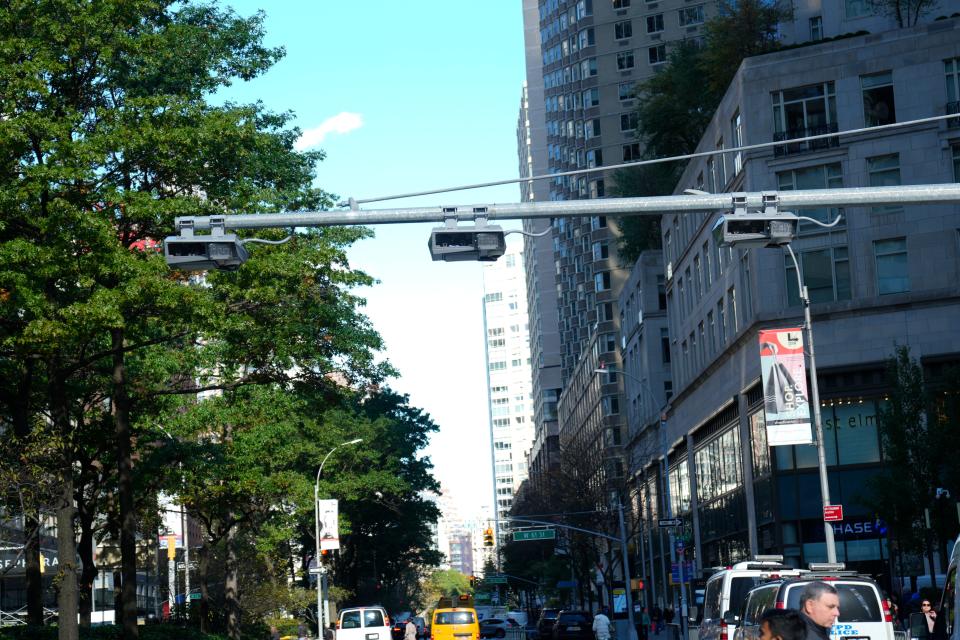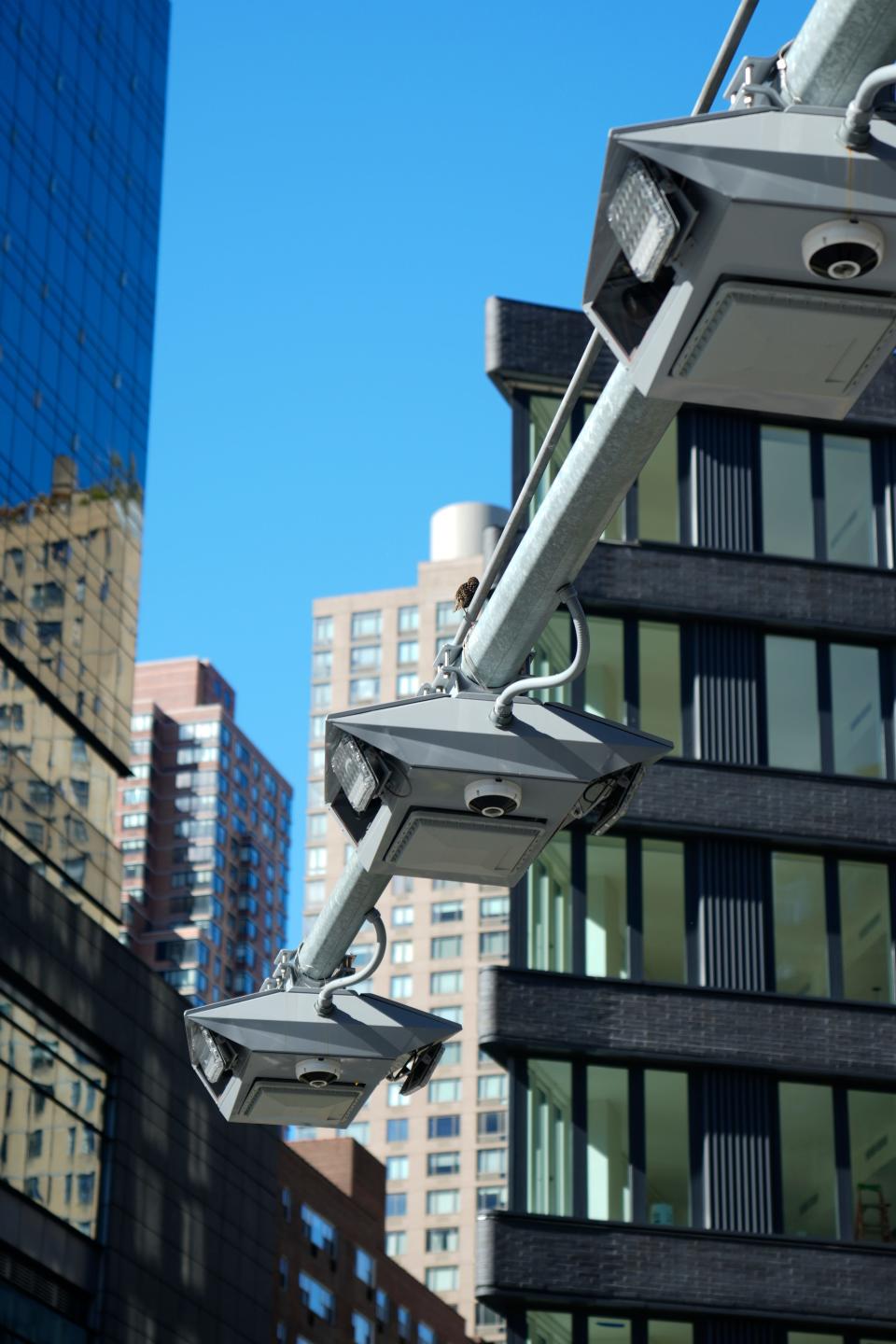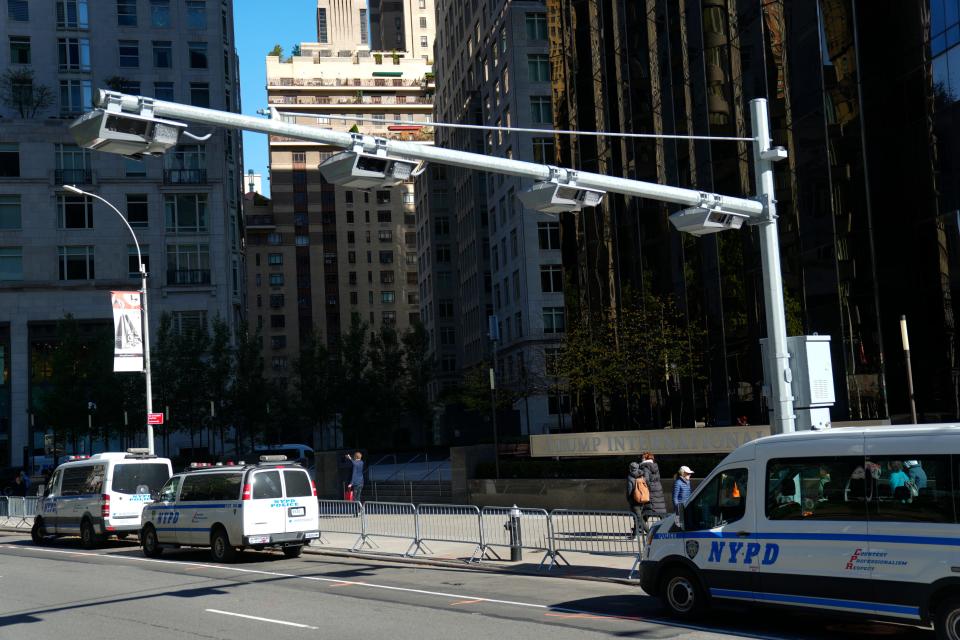Drivers may have to pay $15 to enter midtown Manhattan under NYC congestion pricing plan
- Oops!Something went wrong.Please try again later.
The congestion pricing toll is expected to be recommended at $15 for cars to enter midtown Manhattan, which will be in addition to the $17.63 drivers pay at the Lincoln and Holland tunnels starting in 2024, according to a draft of the report obtained by NorthJersey.com.
The highly anticipated news of the toll's dollar amount appeared to have been announced by the Metropolitan Transportation Authority through The New York Times, although it was first reported by Gothamist.
There is no publicly known date set for the next meeting of the Traffic Mobility Review Board, the panel that is charged with making the recommendation about the toll, exemptions and credits. The board has to vote on the recommendation, and then it goes to the Metropolitan Transportation Authority board for a vote.
"Governor [Kathy] Hochul has been clear from the start: congestion pricing is critical to New York's future, delivering better transit, cleaner air and less traffic clogging our streets. The governor has said repeatedly that $23 is too expensive for the central business district tolls, and is carefully reviewing the recommendations of the Traffic Mobility Review Board," said a statement from John Lindsay, a spokesman for the Hochul administration, released Wednesday night.
Trucks would be charged a $24 or $36 toll in the congestion zone depending on their size, according to the report.
More: What is congestion pricing? Answering all your questions about toll program for NJ drivers
"Tonight’s leaked report demonstrates the rushed and opaque process that the MTA and the Traffic Mobility Review Board have pursued to impose an unfair and ill-conceived congestion pricing tolling scheme on New Jersey commuters," said a statement from Gov. Phil Murphy. "Despite our interconnected and interdependent regional economy and transportation system, New York officials did not meaningfully consult with us from the outset and instead treated New Jerseyans as a convenient way to fill an MTA budget hole."
In addition to congestion pricing and the Port Authority's toll hikes, New Jersey drivers could face toll increases on the New Jersey Turnpike and Garden State Parkway next year. Murphy vetoed the authority's budget containing the 3% hikes in October, just weeks before the state's entire Legislature was up for election, saying he needed more information. Yet at the height of the pandemic, the Turnpike Authority board — which is chaired by Murphy's transportation commissioner, who is also now his chief of staff — approved annual 3% toll increases indefinitely, which was not conveyed to the public.
A few other details about how congestion pricing could work:
Motorcycles will be tolled $7.50.
For-hire vehicles and taxis will charge customers per ride $2.50 and $1.25, respectively.
"Low-income vehicle owners who qualify and register with TBTA should receive a 50% discount on the daytime auto toll after the first 10 trips made by that vehicle in a calendar month."
Tolls will be charged for vehicles only when entering the zone, not leaving it.
Passenger vehicles, motorcycles and automobiles with commercial license plates would be charged only once per day.
Passenger vehicles will receive a $5 credit at the Lincoln and Holland tunnels, as well as the Hugh Carey and Queens-Midtown tunnels, during daytime hours, according to the draft report. Tolls overnight — between 9 p.m. and 5 a.m. — will be reduced 75%. Some will be exempted from the toll, including vehicles carrying people with disabilities, certain emergency vehicles and buses or commuter services vehicles.
The George Washington Bridge is one of the crossings into Manhattan that, under this plan, will not be eligible for a credit, which concerns some, including Murphy, who say that drivers might "toll shop." That means drivers will go out of their way to use the cheaper crossing, which could lead to significantly more traffic at bridges, like the GWB, and potentially upend the goal of the program to reduce congestion because traffic will have shifted, not declined.
More: Could GW Bridge traffic increase from congestion pricing? Here's what one report said
In addition to reducing congestion, the goals of the program are to raise $1 billion a year for the MTA's capital program and to improve air quality.
U.S. Rep. Josh Gottheimer, D-Wyckoff, has for years led the charge to fight congestion pricing.
"As advertised, New York is officially sticking it to Jersey families with their commuter-crushing congestion tax," Gottheimer said in a statement. "If it wasn’t costly enough, the congestion tax will also increase toxic, cancer-causing pollution in Jersey.”
Overhead gantries that will hold the devices to scan license plates or E-ZPass transponders to toll vehicles have already begun going up around the perimeter of the tolling zone, which is below 60th Street, but doesn't include the highways on the edge of Manhattan.
Two lawsuits have been launched in New Jersey to try to stop congestion pricing, one from the Murphy administration that challenges the Federal Highway Administration's decision not to seek a more thorough environmental review. The other, filed by Bergen County residents, alleges that the program will cause more health problems and seeks to require the MTA to create a fund for remediation efforts. Neither of these lawsuits has so far paused the advancement of the program, which the MTA has said is expected to roll out in the spring.
This article originally appeared on NorthJersey.com: NYC congestion pricing: MTA wants $15 to enter midtown Manhattan
